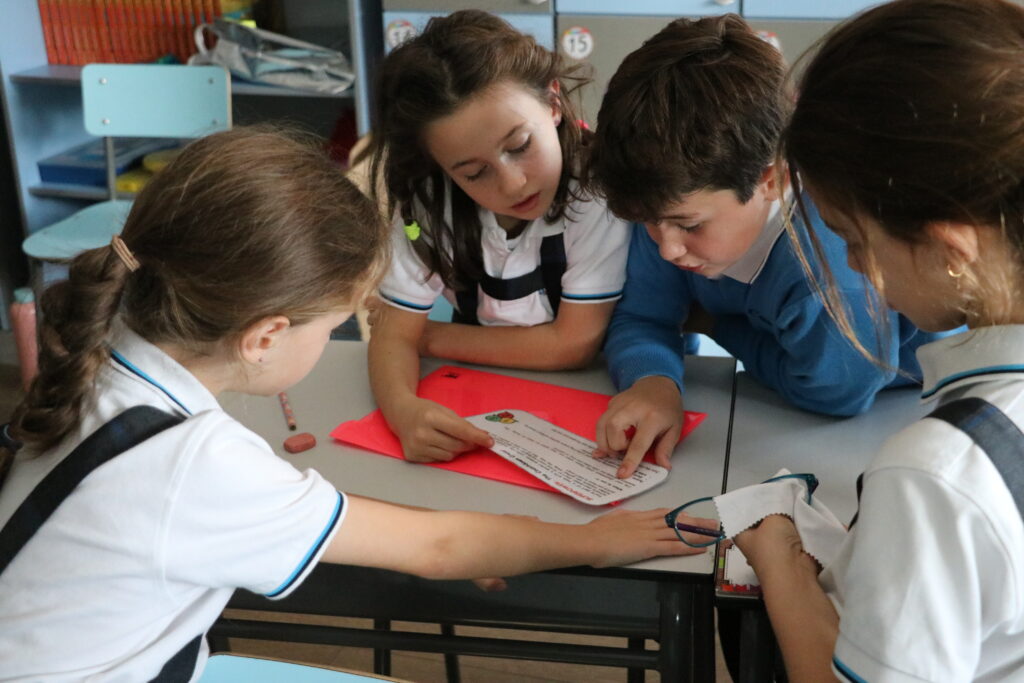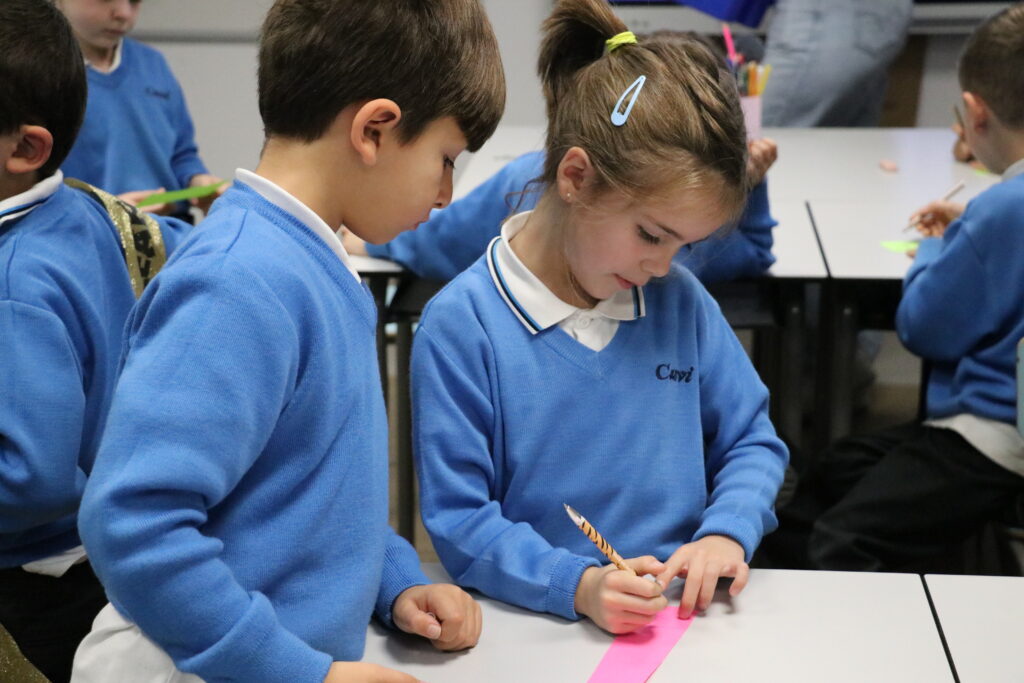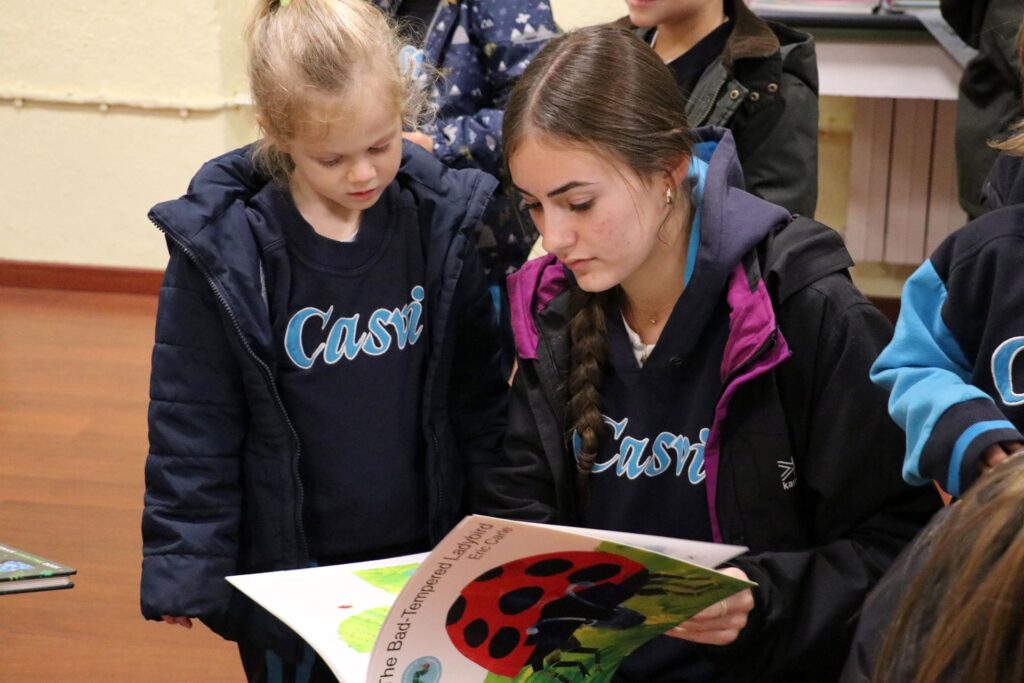What are Social Skills and Why are They Important?
Social skills in children are critical in hildren’s development, allowing them to interact positively with others, manage their emotions, and adapt to different environments. During the first years of life, children begin to build the foundations of their relationship with the world around them, learning to communicate, share, collaborate and resolve conflicts. Not only do these skills influence their ability to make friendships and work in a team, but they are also key to their emotional and academic development and future success in life.
As Piaget explains, social skills are those capacities that allow individuals to interact effectively with others. These skills include the ability to empathize, to communicate clearly, and to resolve conflicts constructively.
Importance of Social Skills in Children
There are many reasons why it is very important for students to learn social skills from an early age. Here are 4 reasons why it’s important.
1. Healthy Bonds
From the first years of life, children begin to form friendships and interact with people outside the family nucleus. Social skills in children help them connect with others, build trust-based relationships, and handle differences respectfully.
At school, with friends, in extracurricular activities, in the park… There are many places and groups of people where children begin to connect with more people outside the family.

2. Emotional Expression and Management
Emotional expression and management are essential for the comprehensive development of social skills in children. Learning to recognize, express, and manage their emotions allows them not only to understand themselves, but also to relate positively to others and face everyday challenges constructively.
3. Academic and Behavioral Performance
Social skills in young children have a direct impact on their academic and behavioral performance. Those who develop competencies such as collaboration, active listening, and the ability to follow directions are more likely to participate effectively in the classroom and perform well academically.
In addition, they learn to manage their emotions, which contributes to appropriate behavior, peaceful conflict resolution and compliance with rules. Not only does this improve their school performance, but it also fosters a respectful and disciplined attitude, preparing children to successfully face both educational and personal challenges throughout their lives.
4. Be Prepared for the Future
Preparing for the future begins in childhood, and social skills in young children play an essential role in this process. From an early age, children who develop competencies such as effective communication, empathy, conflict resolution, and teamwork are better equipped to face the challenges they will encounter in school, socially, and later in their professional lives.
These skills not only allow them to successfully integrate into their environment, but also foster self-confidence, adaptability, and resilience, fundamental qualities for navigating an increasingly interconnected and diverse world. Investing in the development of these soft skills from an early age provides them with a solid foundation to reach their full potential and succeed in any area of their future life.
Basic Social Skills During the Learning Period

The learning period in young children is crucial for the development of basic social skills, which are fundamental for their integration into the school and social environment. During this stage, children learn to interact with their peers, teachers, and family members, developing competencies that will allow them to build healthy relationships and handle social situations with confidence.
Cooperation and Teamwork
Empathy and Understanding of Other People's Emotions
Verbal and Non-Verbal Communication
The development of cooperation begins when children learn to share, take turns, and collaborate in group activities. These skills allow them to work together to achieve common goals, whether it’s in a game, a school activity, or a group assignment. Learning to value the contributions of others and respect roles within a group is essential for their social integration.
Empathy is a key social skill that develops as children learn to recognize and understand the emotions of others. This skill allows them to respond sensitively to the emotional needs of their peers, offering comfort or support when needed. Empathy also fosters harmonious coexistence and mutual respect.
Learning to communicate clearly and effectively is one of the most important social skills children acquire in their early years. Through words, gestures, facial expressions, and postures, children learn to express their needs, desires, and emotions, as well as to interpret signals from others. The ability to listen actively and respond appropriately is also crucial for building positive relationships.
Hands-on Activities to Foster Social Skills in Young Children
1. Role-Playing
2. Board Games
3. Stories and Reading
Role-playing is a powerful tool for teaching social skills to children in fun and effective ways. Through imitation and reenactment of everyday life situations, children can explore different social roles, express emotions, and practice appropriate responses to various scenarios. This activity fosters creativity, empathy, and understanding of social norms, all in a safe and controlled environment.
Collaborative games are unique tools that transform social learning into a playful and meaningful experience. By focusing on a common goal, these games create an environment in which children not only have fun, but also develop essential skills for their interaction with others. Through cooperation, children learn to communicate, solve problems in groups and make collective decisions, skills that will be fundamental throughout their lives.
Reading stories is a powerful tool for teaching children to identify and understand their own emotions and those of others. Through stories full of characters and situations, children can explore feelings such as joy, sadness, fear or anger in a safe and controlled environment. By discussing the actions of the characters and how they affect those around them, children learn to empathize and reflect on how their own emotions influence their relationships.

Teaching Social Skills in Children at Casvi Tres Cantos
At Casvi Tres Cantos, we promote social skills in children through activities such as collaborative games, group dynamics and emotional workshops. We encourage empathy, teamwork, and communication, preparing students to build healthy relationships and face social challenges, complementing their academic and comprehensive development.
Throughout the school year and through the Guidance Department, different activities are carried out with students of different stages to help them improve their social skills and check their situation in class.
Find out More About our School and Methodology
Come and Visit us!
If you want to know more about our methodology, do not hesitate to contact our admissions team. We will be happy to welcome you and show you our school in person. At Casvi Tres Cantos we are committed to a comprehensive education, where we not only transmit knowledge, but also values and skills that prepare our students to be global citizens with critical thinking.
We invite you to visit our Nursery and Pre-School and discover how we promote the development of each child in an international and enriching environment!

![[search_terms] en [Location]](https://casvitrescantos.com/wp-content/uploads/2024/11/IMG_4613-scaled.jpg)